Meet the Warby Parker of Fine Jewelry
You can afford to want AUrate.
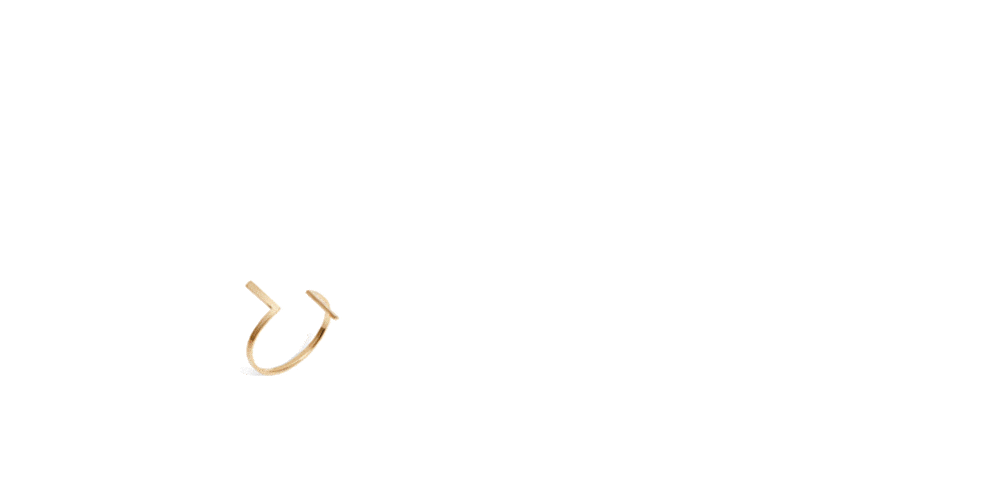
Besides the jewelry itself—clean, skin-highlighting pieces anybody but Cellini would like—the thing that sticks with me the most from my meeting with Sophie Kahn and Bouchra Ezzahraoui is that they insisted on lending me the rings from around their own fingers so that I could take AUrate for a test drive. Disarming behavior for two women you've only just met, but not so much so for two women who've built a brand on the principles of generosity and realness.
Here, in their own words, AUrate's emphatic, scrappy founders talk how they manage to offer high-quality gold and jewels at gobsmacking prices, giving back, and why even the most hapless shopper can buy their stuff with confidence. (They do offer free returns, though.)
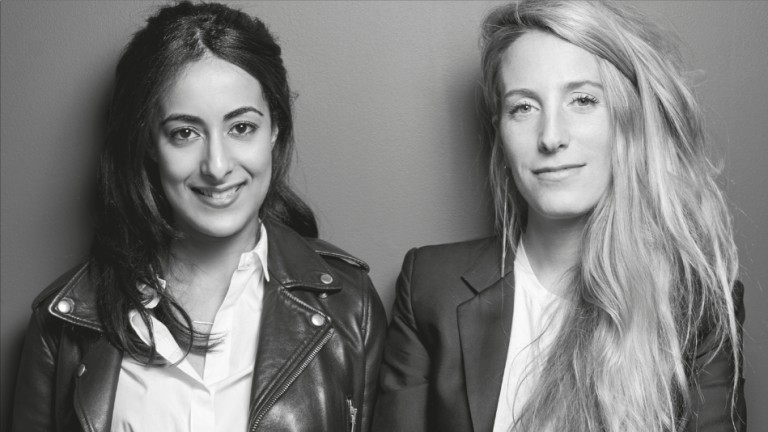
How would you describe AUrate's aesthetic?
Sophie Kahn: We really made three lines for the same woman during different times of the day or three different girls, depending on how you want to think about it. We have the statement line for the fashion-forward girl or when you go out for a gala or a party. On the other end of the spectrum, we have the understated line, which is subtle, not very in-your-face, stackable. It's for the girl who dresses very clean, very simple. Then, in the middle, we have the core line, which is day to night. One of my best friends is a lawyer and she'll wear that to the office, then out to a club. Our brand is about real women at different phases in their lives. We're not focused on one aesthetic. We understand a woman is multi-faceted, that she's going through different moments, different times, and we've adapted our aesthetic to that.
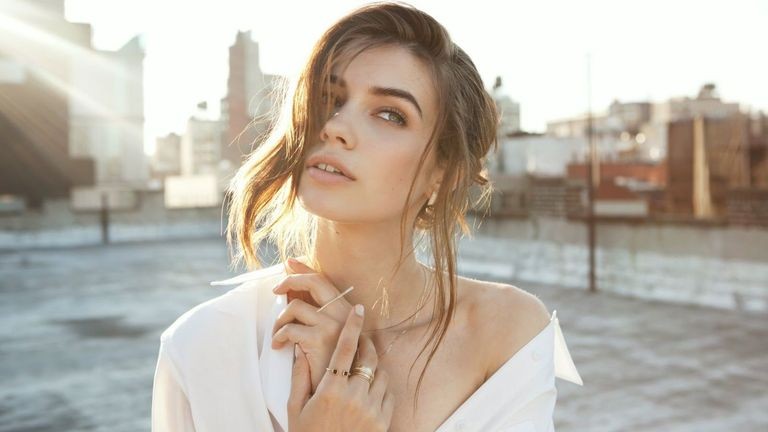
And how does it work?
Kahn: "In one sentence, you can summarize it as 'real gold, real giving.' We cut out the middleman and provide real, high-quality gold jewelry to our customers, empowering more women to have that. And the real giving part is that, for every piece we sell, we give a book to a child in need. The reason we started this is that we saw a gap in the market, in the fact that ourselves, being women around 30, were not happy with just costume jewelry anymore. And when we wanted to get fine jewelry, we realized we were always overpaying. And that's why we thought there should be a better solution out there. When we started analyzing, we saw that nobody carries jewelry in that middle segment.
The giving-back element holds for our production too. All the gold we source, we check that it meets environmental and sustainability standards. All our diamonds we make sure are from conflict-free zones. We'd never sell something that's not 100 percent ethically sustainable."
Get exclusive access to fashion and beauty trends, hot-off-the-press celebrity news, and more.
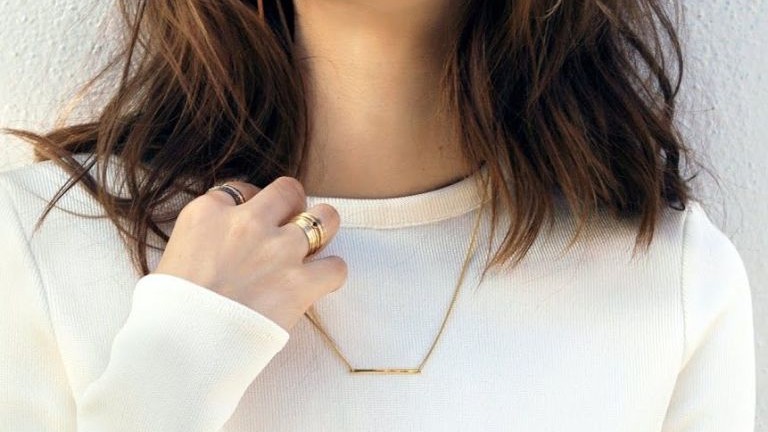
What I really like about AUrate is that it's such a feminist brand. You're opening an exclusive market to more women and, of course, you've got the both of you on a team together.
Bouchra Ezzahraoui: "If you look at our style, our aesthetic, too, we're not about the perfect doll. We're going after the independent woman. She's real. She's smart about her look, her budget, and her life. That's the woman we're going for."
Kahn: "Our personalities make it so that this venture is the perfect fit for us. Even though we both studied finance at Princeton, our backgrounds are very different. After Princeton, Bouchra really focused on finance [as a trader at Goldman Sachs], while I went into fashion [Director of Strategy at Marc Jacobs]. I'm a little more emotional, so she can keep me stable. And on my end, because I have a consulting background, I'm super meticulous and detail-oriented. We can bounce off each other both emotionally and professionally. We sort of joke we're married—our first joint bank account was with each other."
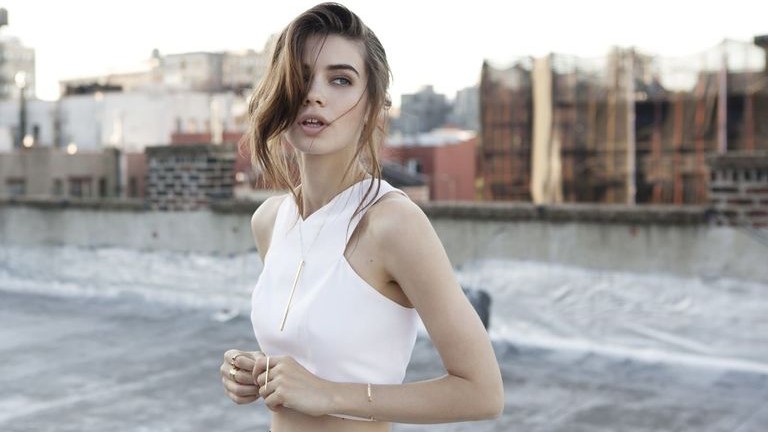
There's always risk and uncertainty with a startup, but what would you say is the best part of what you do?
Kahn: "For me, it's having a real impact on this world. My dad's a doctor and my mom's a child psychologist, so I've always had this thing of wanting to give back. But I like fashion, so I felt very conflicted for a very long time. Now, we've got our company where we're a) helping kids read, b) creating jobs, and c) doing that all by ourselves."
Ezzahraoui: "It's like an infant you see growing bigger. We're learning a million more skills we didn't have before. In any other job, you're using just one corner of your brain—this is a completely new experience that pushes you to your limits. It's making me much better at my day job because I'm able to deal with more stress. You can't get that unless you're working on your own business. It's like walking in the dark, running marathons, sprinting—it's impossible to describe, really, but it's the best thing that can happen to you."
Kahn: "With this, you really live. If I die tomorrow, I wouldn't be sad. I did what I wanted to do."
Chelsea Peng is a writer and editor who was formerly the assistant editor at Marie Claire. She's also worked for The Strategist and Refinery29, and is a graduate of Northwestern University. On her tombstone, she would like a GIF of herself that's better than the one that already exists on the Internet and a free fro-yo machine. Besides frozen dairy products, she's into pirates, carbs, Balzac, and snacking so hard she has to go lie down.